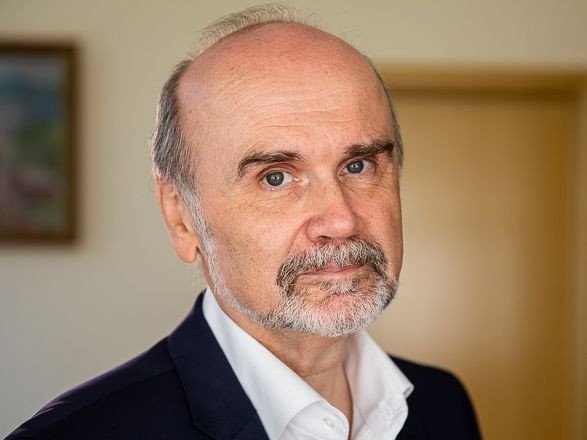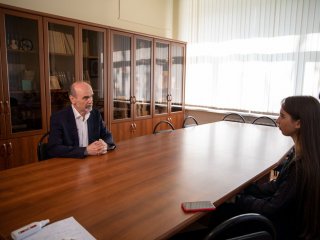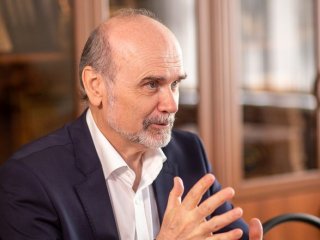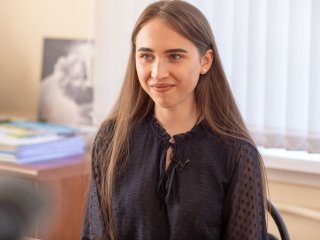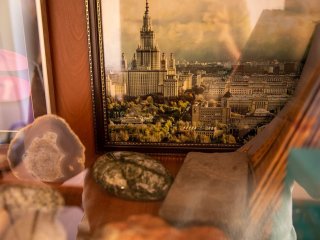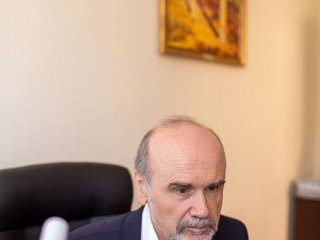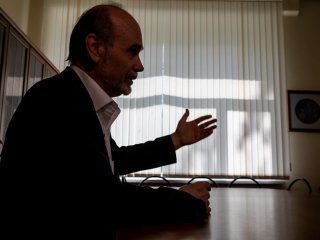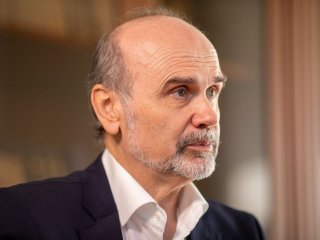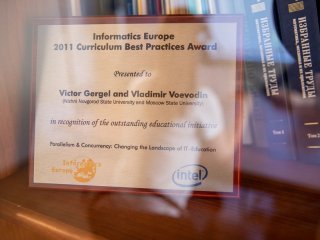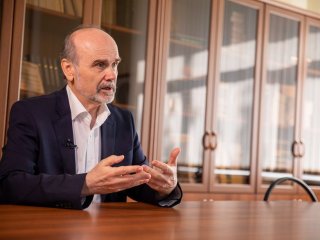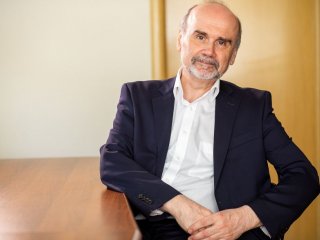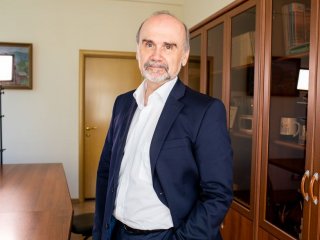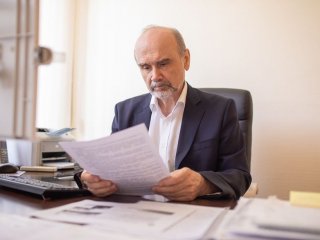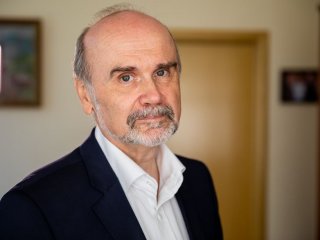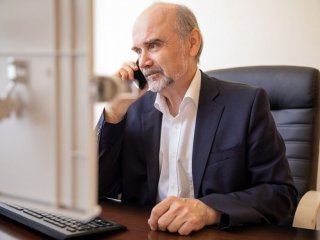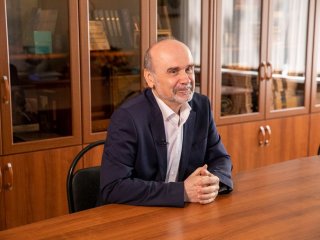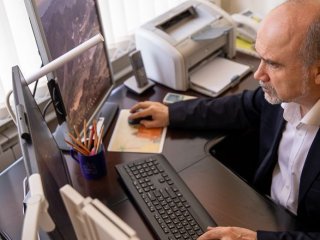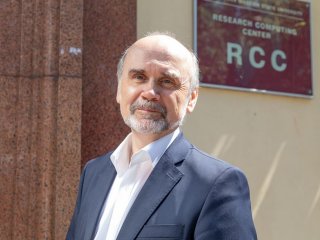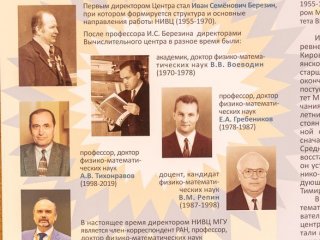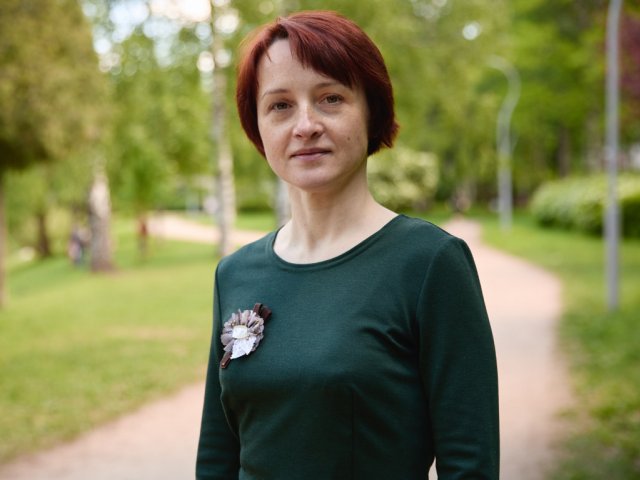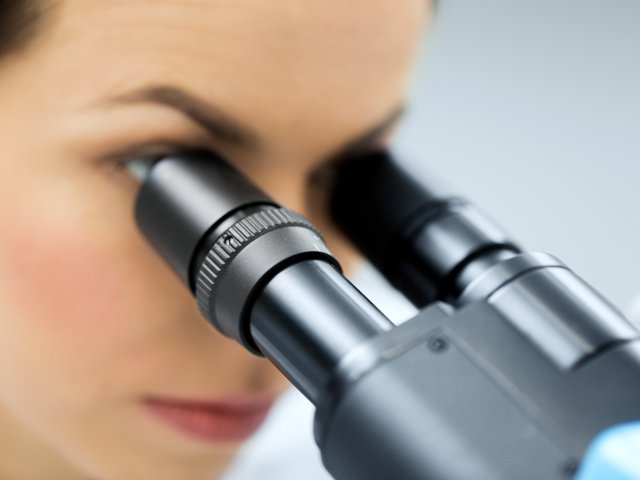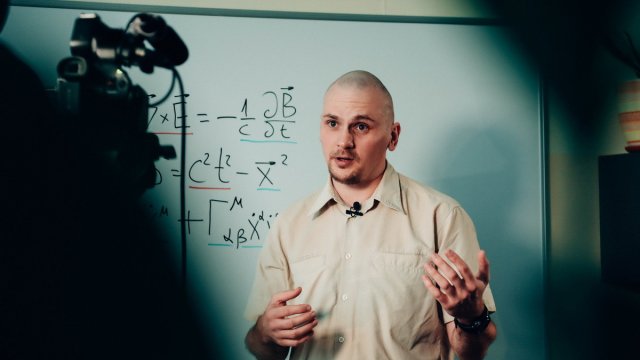The year 2021 was declared the Year of Science and Technology by the President of Russia. And this is the year when it was decided to create the National Center for Physics and Mathematics. A branch of Lomonosov Moscow State University in Sarov will soon open at the same site, too. We interviewed Vladimir Valentinovich Voevodin, Director of the MSU-Sarov Branch, Head of the Research Computing Center of Moscow State University, Corresponding Member of the Russian Academy of Sciences.
- Vladimir Valentinovich, the new branch of MSU-Sarov will soon open its doors to the first students. What areas of training are expected to be available?
This is a very interesting thing. Yes, you are absolutely right, we will start training the first 50 master's students on the first September. The main goal of the branch is to train highly qualified specialists.
On the first of September we start training students of the five master's programs. The two main fields are physics and applied mathematics. Basically, it is not surprising that the focus is placed on these two areas. The future century is the time of modern technology. If we are talking about high technology, then of course physics and mathematics are the main sciences on which modern technology rests.
Since the very beginning, the Russian government has emphasized training specialists who can work effectively in these fields. We are talking about a high-tech economy, a high-tech country.
This means that the state needs leaders, high-tech leaders namely. And the emphasis, in this case, is also placed on deep knowledge of fundamental science, because only those people who know and understand fundamental science can make the right technological decisions.
- The new branch of Moscow State University is a large-scale project that envisions the creation of an Academic Town. Is it true that we are also talking about “megascience” class facilities?
Yes, that's right, and such a continuum of learning, education, and participation in research should be a must. This is inextricably linked to the educational process. In the area of the National Center for Physics and Mathematics and the new Moscow State University branch, which is a few kilometers from the city of Sarov, “megascience” class facilities will also be created. For example, we are talking about designing the Super-Charm-tau factory. This is a new type of collider, an exceptionally productive one. Scientific discoveries can only be made if you have the opportunity to join research at world-class facilities and stand at the cutting edge of science. This kind of focus is also made when creating the branch.
It is planned to immediately involve students in scientific work. Projects should be carried out at the world level with the involvement of world leaders as supervisors. We envisage a unique scheme: each student will have two scientific supervisors: one from Moscow University, the other from the Sarov Scientific Center. It is known that Sarov itself has a unique experimental base, which will also be used in the training process.
- MSU's young researchers have done a lot for the development of national science. And they are often students who have not yet completed their studies. Does the new center provide for a combination of theory and practice?
This is a must. Practice will come along with the theory. When you work on world-class facilities live, you can get a feel for what the next step might be to advance in science. And the science, theory, and practice along with computational experiments are just inseparable. So, this mix of physics, mathematics, and supercomputing is present at the branch. And this is where the branch begins its work.
- Every aspiring researcher dreams of starting their way into science under reliable guidance. Are there any plans for students to collaborate with Russian scientists?
Absolutely, along with extensive mentoring. We assume that organizing the branch, just like organizing the National Center for Physics and Mathematics, is the work of an entire consortium: Moscow University, the Russian Academy of Sciences, Rosatom, and the Kurchatov Institute. These organizations concentrate enormous intellectual potential. Many specialists want to give lectures at our branch. The goal set by the Russian government is to train the scientific elite, and they are very close to it. They want to invest and pass their knowledge on. That is why we plan to have so many internationally renowned scientists involved in mentoring.
- So, you mean that the faculty members include more than the MSU employees only?
Yes, we use every opportunity. Moreover, our master's programs were created specifically for the branch. Some disciplines are unique – they can only be taught by certain specialists from the Russian Academy of Sciences and Moscow University.
- Are these master's programs only available at the branch?
There are similar elements of master's programs, but many of the disciplines are indeed specific and designed specifically for the branch; we expect to attract an exceptional intellectual force in teaching, along with the very unique setups I was talking about.
– What employers are interested in future graduates of the new branch?
The further we move in this project to create a branch together with the National Center for Physics and Mathematics, the more the circle of potential employers expands. People understand that everyone needs this kind of emphasis on scientific and technological leaders. If we take the enterprises of Rosatom, an exceptionally high-tech company, we see that it has everything: nuclear power, space technology, high-tech medicine, the nuclear fleet and much more. And every area needs a person who understands the effect of modern technology, what you can get from it, how to build a digital industry.
And it's not just Rosatom and the Russian Academy of Sciences. Basically, we speak about every high-tech sector of the Russian economy.
- Moscow State University has created schools of thought based on bringing together researchers from several faculties for an interdisciplinary approach to solving problems. How effective do you think it is?
The very creation of interdisciplinary scientific schools is a very correct and timely measure. Because it is only possible to get scientific breakthroughs at the nexus of several sciences.
Seven scientific and educational interdisciplinary schools were established last year. They selected the topics that seem promising, which could achieve a scientific and technological breakthrough. The schools began to operate successfully. The branch is planning to cooperate with them, because it is interdisciplinary by itself. Right now, we have emphasized physics and mathematics. Eventually, the areas of training will expand, and we will build cooperation with all of the advanced schools that are present, at Moscow University specifically.
- Will the list of master's programs be expanded? For example, in the direction of humanities research?
We are considering this option as well. It is subject to consideration, but by no means rejected. Now we are forming and creating a development program for the branch for the next few years. We are trying to assess the key areas which are worth developing. And from this point of view, we want to carefully analyze what can be interesting in the natural sciences and what can be interesting in the humanities. There must be a symbiosis somewhere.
- Is international cooperation envisaged?
Absolutely, but not at once. Not immediately, because you have to start somewhere, and then develop it. It is difficult to talk about training highly qualified professionals without integrating into the global scientific community. We plan to attract foreign teachers. Unfortunately, over the past year we got used to distance learning, but in terms of attracting foreign specialists, it can be useful, because it is easier to negotiate, to ask a person to give a lecture course or just a popular science lecture without coming to Russia from home or from your organization, than to organize this kind of logistics. At the same time, there is one delicate point. Face-to-face communication with the student is very important. Despite all the difficulties that surround us, we rely on face-to-face teaching in the MSU branch organization to get professors to attend these classes personally. A face-to-face conversation is very important, especially if we're talking about training top-level specialists.
If we're talking about integration into the international infrastructure, then we're also talking about foreign students in the future as well.
- Do you have plans for academic mobility and exchange programs for students?
Yes. You mentioned a very good word - “mobility.” As we design the branch, we understand that learning and being attracted to science should be comfortable. We need to make it pleasant to study, conduct researches, and live in this place. We are talking about a new type of Academic Town in terms of technology capabilities, mobility, and integration into the information environment. The students should feel like they are at home. They should not be isolated; they should stay in their own environment. This is what the creation and design of the campus and the dormitories is aimed at. Students will live in individual townhouses. Each house will be 120 square meters, accommodating six people. These are fully equipped two-story houses with luxurious living conditions.
We try to create such conditions, so that the guys would think less about domestic problems, and could devote themselves to studying, science and progress. The creation of comfortable conditions for doing science is of paramount importance.
- The world's leading powers are competing in a race to build a supercomputer these days. Could you tell us whether you will pay attention to this or only new fields of research will be pursued?
The branch provides traditional directions as well, and we will have the highest level of technical equipment here. Speaking about classroom equipment, each classroom will have interactive whiteboards, videoconferencing equipment, personal tablets for students, and so on. It goes without saying that broadband Internet is available across the entire campus.
A great deal of attention is paid to laboratory equipment: experimental facilities, physical facilities, including world-class high-performance computing systems.
Our focus lies not only on the traditional approach, but also on perspectives. Even now, within the program of the National Center for Physics and Mathematics, which is being established, there are separate directions on quantum computing, photon computers, I mean, promising directions on the organization of computing systems and the organization of the computing process are envisaged, for sure. And students will be involved in this research from the very beginning.
- Today, Russian scientists are engaged in the development of digital twins of, for example, the Lake Baikal. Could you tell us if similar projects are planned to be carried out at the new branch?
This is one of the main trends: digital twins, digital shadows, digital models. Such concepts are on the ear and this is something that can be already done now.
- The need to predict climate change affecting our planet has recently been discussed. Is it possible for students to participate in such projects?
This is a topic of interest to many people. It is supported at the Center, too. By the way, one of MSU's scientific schools is directly related to this. This topic includes Earth system models, global climate change, and ecology in general. This is a very important topic, which is inseparable from supercomputer systems and big data.
- Will students be able to participate in projects from the 1st year of study?
Yes, because the master's program is practically the final educational degree. Starting next year, we plan to open a postgraduate training program within the branch, and the students will be able to continue their work in science and beyond. As for scholarly work, potential instructors have compiled quite a big list of topics that will be offered to the students as thesis topics for scientific work. They are published on the website and they are interesting to look at. To be honest, their goal was to make sure that almost every topic is a nearly finished PhD dissertation. I mean, the students should be guided by the fact that we speak about the modern edge of science, where you can easily make another step towards the defense of a dissertation.
- Are there any counterparts to the existing branch in the world?
In some sense, yes. People establish universities next to such centers in order to reproduce scientific personnel and train highly qualified specialists, who can then come to work at the research centers.
I think that the branch we are building is unique both in terms of its orientation towards the very scientific and technological elite, in a positive sense of the word, and in terms of technological support: we will provide students with necessary tools (experimental installations, supercomputer systems) for training and research.
Moreover, we should also mention the master's programs and the unique set of teachers that are hard to find elsewhere. They were selected specifically for the Branch to meet the main goal, which is to train scientific and technological leaders.
- How long has it been since the branch was first planned?
A decree on the establishment of the branch was issued for Moscow University on December 28, 2020. In January 2021, we began active work. Everything was created in a very brief time; the work is incredibly intensive. This includes the preparation of premises, renovation, technological equipment, designing master's programs, compiling curricula, and much more. The work is still in progress. Besides, it is important for us to provide a comfortable campus, where you can not only study comfortably and become an outstanding specialist in the future, but simply enjoy your life.
The list of master's programs, admission rules, and other information can be found on the website of
the Lomonosov Moscow State University in Sarov
